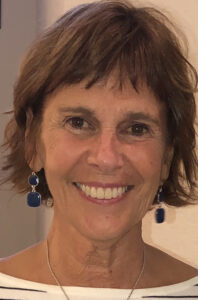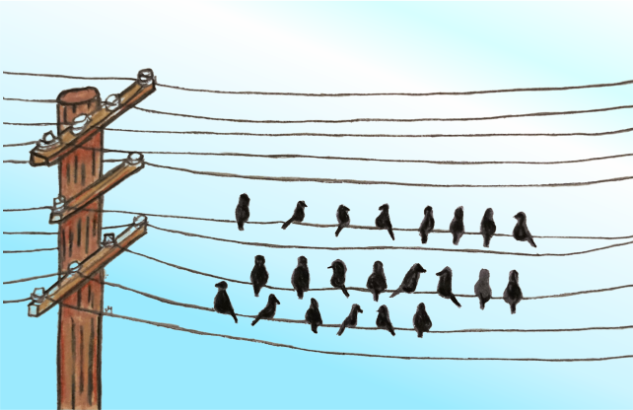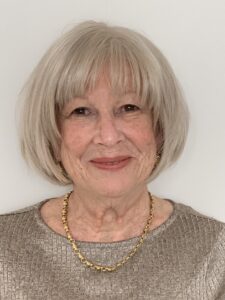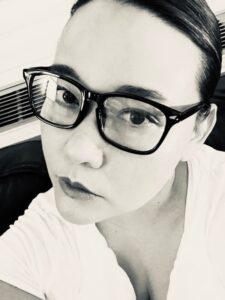
who we are
We are educators, linguists, anthropologists, community activists and designers with a lot of experience researching, teaching and crafting a wide range of health and science communication tools and campaigns. Print, mixed media, e-Health, social media …

-

-

Judith A. Salkeld, M.S.
-

Wendy Vaughon, DPH
Christina Zarcadoolas, PhD

I started as a poorly signing teacher of the deaf right out of college and wound my way to a doctorate in linguistics and 40+ years working on public understanding of health and science. To me it’s not that random. My childhood friend and I learned sign language when we were young. My young mother was deaf in one ear and I wanted to be prepared if she lost her hearing completely. And then, after college, by complete serendipity, I found myself teaching deaf high school students in New England. These young people struggled mightily to master speaking and writing English while I wrestled with the question – how could the language I use so effortlessly everyday be like learning hieroglyphs for them. Those years teaching and learning from my deaf students changed my life and set me on my path towards understanding more about how language works to communicate effectively to contribute to a more engaged, informed, healthy and equitable society.
In the 80s I dove into graduate linguistics studies – spoken and written language, grammar, reading and decoding, phonology, speech acts, cognition and memory… By the early 90s I was a social scientist teaching in the area of environmental studies, with a focus on how we communicate about the environment and how people perceive these issues. Going from public participation though messaging in recycling programs to public understanding of health risks was a natural and thus I stumbled into the early health literacy field.
We were talking different languages.
From the start we were burrowing in different holes. Or as I see it, we were talking two different languages. Popular for more than a decade were hundreds of studies showing what patients couldn’t understand or do, and developing tests to confirm these inadequacies.
(Example taken from TOFHLA)
Take one tablet by mouth every 6 hours as needed.
ORAL QUESTION: If you take your first tablet at 7:00 a.m., when should you take the next one? CORRECT ANSWER: ‘‘1:00 p.m.’’
I was starting where linguists or anthropologists choose to start – figuring out what people are actually doing with language – in this case what they were doing with health and science information.
So for all these years I’ve focused on analyzing and working to close the gaps between expert and lay knowledge about language and health through my research, teaching, policy and program development work. I’m most comfortable using multiple models to analyze or create health messaging: linguistic complexity, science literacy and human factors engineering.
I was lucky enough to have wonderful, challenging colleagues and we wrote a book together that the New England Journal of Medicine called “required reading” for public health communication professionals (Advancing Health Literacy: A Framework for Understanding and Action (with Andrew Pleasant, PhD., Dr. David S. Greer, Jossey-Bass/Wiley 2006).
I have been on the faculty at a number of great schools: Professor of Linguistic Anthropology at Hunter College, CUNY; Professor CUNY School of Public Health, and Assistant Professor, Mount Sinai School of Medicine. I started my teaching career on the faculty of Brown University Center for Environmental Studies and am equally proud that I started out as a Teacher of the Deaf in 1974 (RI School for the Deaf and Lexington School for the Deaf NY). My courses focus on ethnographic and qualitative research methods, communications theory and practice, health & science literacy and complex emergencies.
I’ve received a number of teaching awards and received the 2018 Doak Health Literacy Champion Award.
In 2014 I founded the popular healthliteracylab.com, an ever-expanding free library of communication and design lessons for public health and safety professionals.
I am currently writing a book, “The Simplicity Complex”, about the limits of simplification in an ever more complex world.
I received a Ph.D. in Linguistics and Theories of Discourse from Brown University.
(Link to Academic Bio Here)
Judith A. Salkeld, M.S.

At the Health Literacy Lab I bring my extensive experience in public health and nutrition to research and consumer product development. I hold a degree from Tufts University School of Nutrition Science and Policy and have held professional positions at premiere institution – Massachusetts Department of Public Health, Harvard School of Public Health, Brown University’s Institute of Community Health Promotion and Women & Infants Hospital, RI. My years of experience interacting with patients and consumers as well as my passion for health education and health literacy enhance my contributions to research projects and in tool development and evaluation. My understanding and empathy for people in the health system combine with my skill in transforming evidence-based information into messages and materials for low-literate, ethnically diverse audiences.
Wendy Vaughon, DPH

I have over 20 years of practical, academic, teaching, and research experience. This includes advising a broad range of public and private organizations on research design, qualitative and quantitative methods, program evaluation, and usability testing—with a specific focus on underserved individuals, communities, and populations. My education includes a (BA) from Brown University in Psychology and a Master of Public Health (MPH) degree from the Mount Sinai School of Medicine (now the Icahn School of Medicine at Mount Sinai). I hold a DPH degree from City University of New York (CUNY) Graduate School of Public Health and Health Policy and I am a fulltime instructor at the Hunter College School of Urban Public Health. When not engaged in the pursuit of a more health literate society, I spend time with my cats, my husband Steve, and a beloved, bare bones, stick-shift coupe.
Who We Are
We are linguists, anthropologists, social scientists and educators who’ve spent decades researching, teaching and crafting and evaluating a wide range of health and science communication tools and campaigns. Print, mixed media, e-Health, social media – top down and community up.
We’ve had our share of “would’ve, could’ve should haves.” Some of our work fell flat or didn’t live up to expectations. The lessons that go into the Lab’s Library are all products of what we and others have learned doing this work.
Our motivation for creating the Lab is that most health and science information intended for the “public” is not tailored to fit their abilities to take in, understand, believe and use the information.
Messages and content swing pendulum-like from overly complex and inaccessible to overly simplified, without much content. We focus on methods to achieve a balance between the two.
We start with credible scientific and health information, adapt it to be conceptually accessible, linguistically appropriate and in a format or medium that makes sense to the target audience.